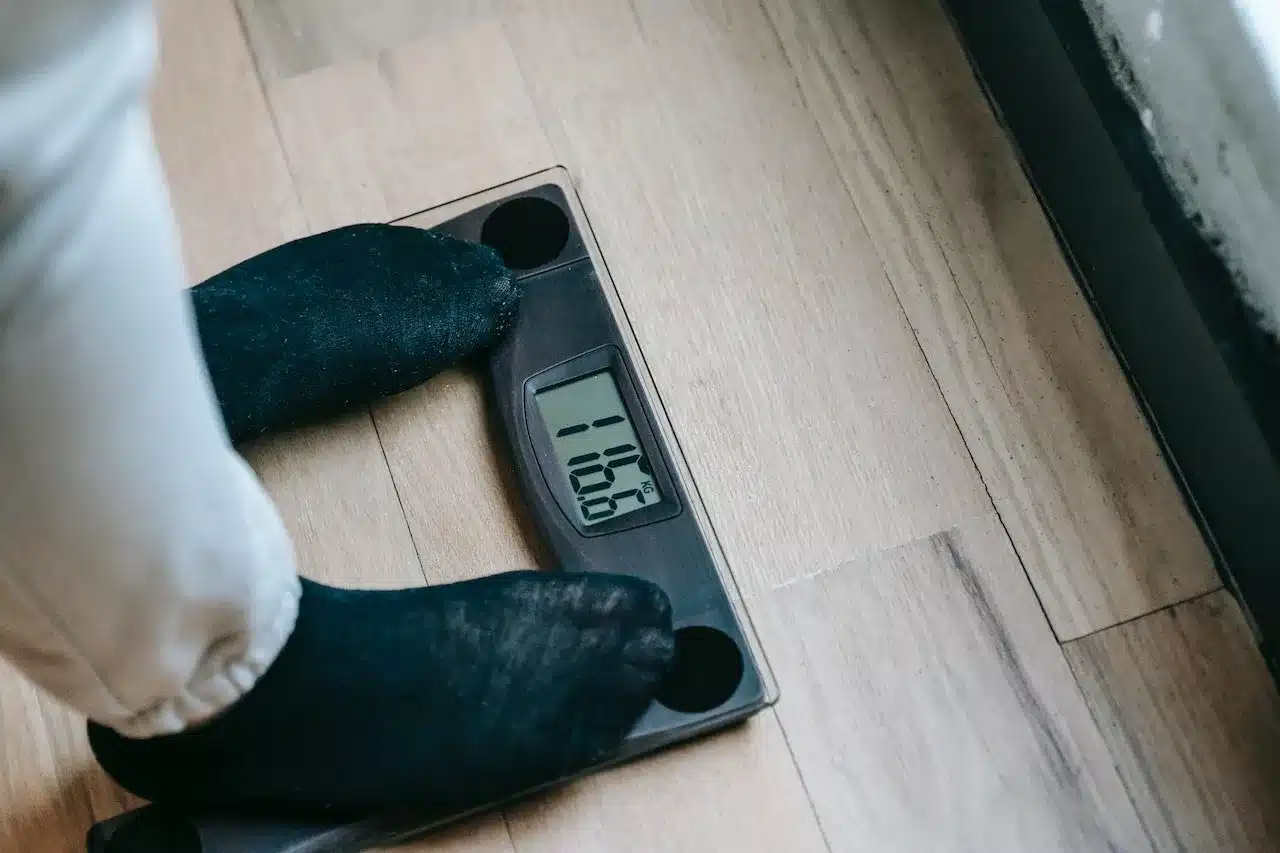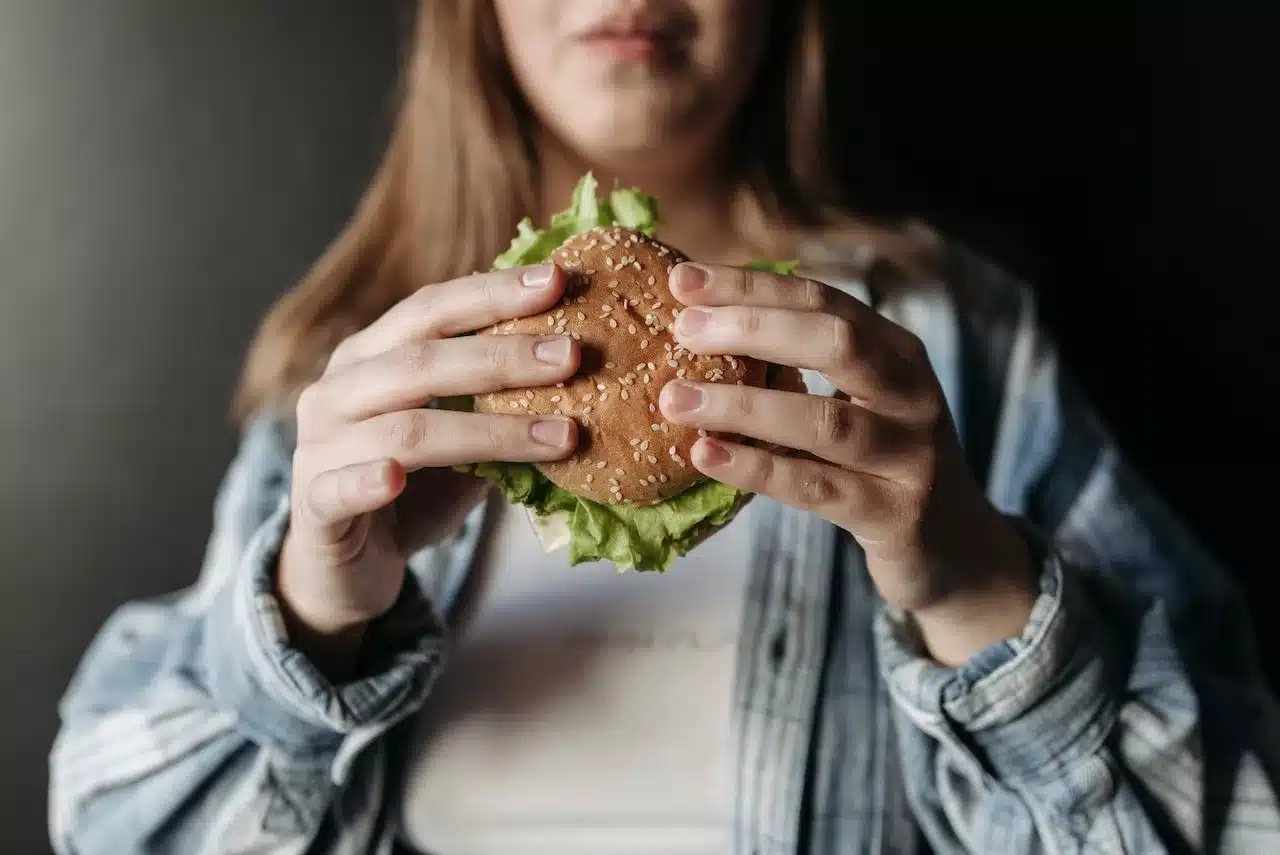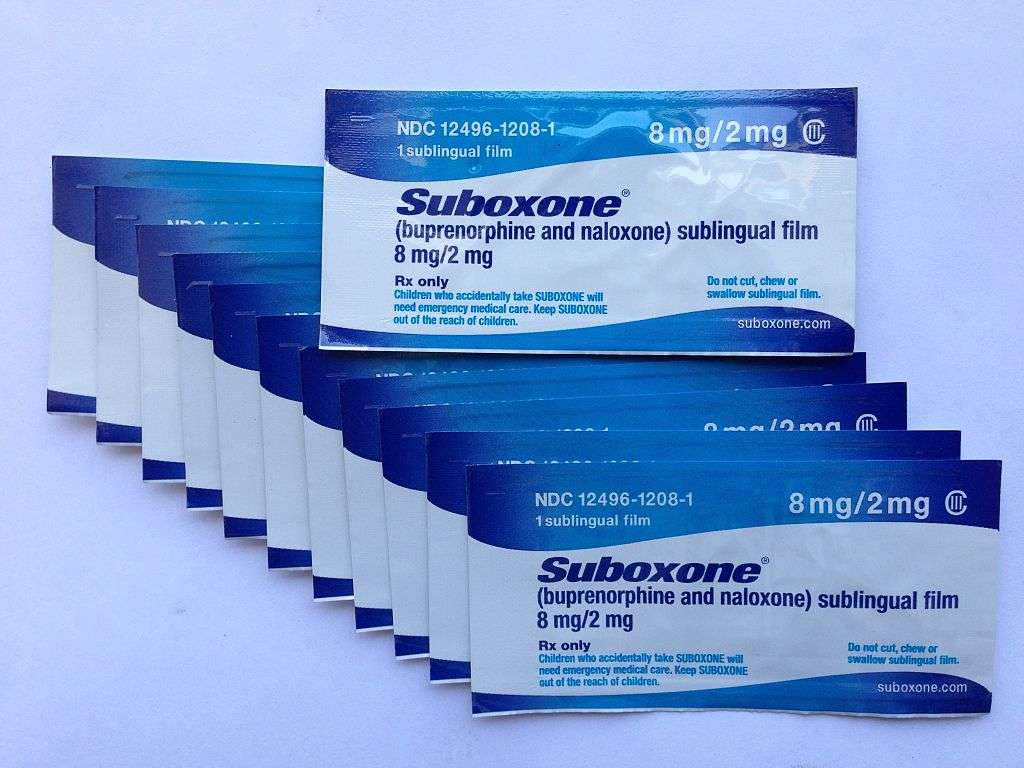Suboxone, a revolutionary medication that’s become a significant player in the field of addiction treatment, has drawn attention not only for its potential in combating opioid dependence but also for its potential side effects, one of which is its impact on weight. Understanding how Suboxone affects weight is crucial, as this insight can enable patients and healthcare professionals to monitor and manage this aspect during opioid addiction treatment effectively. It is also important for individuals considering Suboxone therapy to have a comprehensive understanding of its potential effects, including those on body weight.
This article will provide an in-depth examination of how Suboxone influences weight, delving into the scientific, medical, and personal perspectives of this complex interaction.
Understanding Suboxone
Suboxone is a prescription medication designed specifically to aid in the treatment of opioid addiction. It combines two active ingredients, buprenorphine and naloxone, to mitigate the effects of opioid withdrawal and decrease the likelihood of misuse.
Buprenorphine is a partial opioid agonist. This means it binds to the same receptors in the brain that opioids do, but it does not produce the same high. By doing so, buprenorphine helps reduce cravings and withdrawal symptoms associated with opioid addiction.
Naloxone, on the other hand, is an opioid antagonist. When taken as prescribed, naloxone has no effect. However, if a person attempts to misuse Suboxone by injecting it, naloxone will induce withdrawal symptoms, thereby discouraging misuse.
Together, these components make Suboxone an effective tool in the fight against opioid addiction. It allows individuals to transition away from harmful opioids more comfortably and safely, thereby facilitating successful long-term recovery. However, like all medications, Suboxone may have side effects, one of which is its potential impact on weight.
Suboxone and Weight: A Complex Relationship


Are you or a loved one affected by opioid addiction? Contact us today.
Understanding the interaction between Suboxone and weight requires a nuanced approach. It’s not a simple cause and effect relationship but a complex interaction influenced by various factors including individual health status, lifestyle choices, and side effects of the medication itself.
The Medical Perspective
From a medical standpoint, Suboxone’s impact on weight is not straightforward. When it comes to weight, the effects are more indirect and often related to how the body reacts to the cessation of opioid use, aided by Suboxone, and the side effects of the medication. For instance, one of the withdrawal symptoms of opioids can be a lack of appetite, which might have led to weight loss in individuals struggling with opioid addiction. Upon starting Suboxone treatment, the return of a normal appetite can lead to weight gain. This is not so much a direct side effect of Suboxone, but a return to healthy eating habits.
It’s also essential to note that weight changes may not occur for everyone. The body’s reaction to Suboxone can vary depending on individual biological factors, including genetics and metabolism, making the connection between Suboxone and weight complex and multifaceted.
Side Effects of Suboxone
Like any medication, Suboxone can have side effects. While not everyone experiences these effects, and their intensity can vary among those who do, it’s important to understand them, as they can indirectly contribute to weight changes.
The common side effects of Suboxone include:
- Nausea
- Vomiting
- Constipation
- Sweating
- Changes in appetite
In terms of weight, some individuals report changes in appetite as a side effect. As previously mentioned, a normalized appetite following opioid withdrawal can lead to weight gain for some.
Further, some side effects such as nausea or vomiting, if persistent, could contribute to weight loss, while others, like constipation, might cause temporary weight gain. It is important to report any persistent side effects to a healthcare provider, as they may be able to provide solutions to manage them, thereby also managing any associated weight changes.
Suboxone’s Impact on Weight


Your journey to recovery starts here. Get in touch with us.
While we have explored the overall relationship between Suboxone and weight from a general perspective, it is necessary to delve into specific issues that may influence this connection.
Suboxone and Water Retention
Water retention, also known as fluid retention or edema, involves excess fluids building up inside the body’s tissues. It’s often noticed as swelling in the hands, feet, ankles, and legs. While water retention is not a commonly reported side effect of Suboxone, it’s crucial to note that everyone’s response to medication can differ.
There’s no concrete evidence to suggest that Suboxone directly causes water retention leading to weight gain. However, factors such as diet, lack of exercise, or certain medical conditions that might accompany opioid misuse or withdrawal can influence water retention. Any potential weight gain from water retention would likely be temporary and could fluctuate with lifestyle modifications and managing underlying conditions.
Suboxone and Sugar Cravings
Another dimension to consider is the potential link between Suboxone and increased sugar cravings. Anecdotal evidence from some individuals taking Suboxone suggests a tendency to experience heightened sugar cravings. Increased consumption of sugar, particularly in the form of high-calorie, low-nutrient foods, can lead to weight gain.
However, it’s important to highlight that Suboxone doesn’t usually cause weight gain on its own. The relationship between Suboxone and weight is likely multifactorial, influenced by various individual, lifestyle, and biological factors. Heightened sugar cravings might be just one piece of the puzzle, and more research is needed to conclusively identify this as a common occurrence.
Suboxone and Appetite
The influence of Suboxone on appetite and its subsequent implications for weight changes is another crucial aspect to consider. As mentioned earlier, for some people, the initiation of Suboxone treatment can lead to a return of normal appetite after a period of appetite suppression during active opioid misuse. This can result in weight gain as one returns to a regular eating pattern.
On the other hand, some individuals report experiencing less hunger while on Suboxone. Thus, Suboxone can cause weight loss in the short term for some individuals, particularly if a reduced appetite leads to a lower caloric intake.
In essence, the impact of Suboxone on appetite, like many other aspects of this discussion, can vary greatly among individuals. It emphasizes the point that the medication causes patients to gain or lose weight in a nuanced way, largely mediated by personal, lifestyle, and biological factors.
Suboxone and Weight Gain
Delving further into the intricate relationship between Suboxone and weight, it becomes evident that while not a direct side effect, there are circumstances under which Suboxone use may contribute to weight gain.
Suboxone, in itself, does not inherently cause substantial weight gain. Instead, the indirect factors tied to its use may be the drivers behind weight gain. For instance, as we noted earlier, a return to normalized eating habits after opioid misuse can contribute to increased caloric intake and subsequent weight gain.
Additionally, lifestyle changes that occur during the transition from active addiction to recovery can impact weight. For example, some individuals might find themselves leading a more sedentary lifestyle during the early stages of their recovery process. A decrease in physical activity coupled with an increase in caloric intake can certainly contribute to weight gain.
Suboxone and Short-Term Weight Loss
Contrary to the instances of weight gain, there are also circumstances where Suboxone can cause weight loss in the short term. Weight loss could occur in the early stages of Suboxone use due to various factors such as initial side effects like nausea, vomiting, or reduced appetite, which can lead to decreased caloric intake.
The short-term weight loss might also be an indication of the body’s process of adjusting to the medication. This effect is often temporary and may level off as the body acclimates to the drug. However, if the weight loss is significant or persists for an extended period, it is recommended to seek medical advice, as this could indicate other underlying health issues.
Again, it’s important to reiterate that the effects of Suboxone on weight are multifaceted and can vary greatly among individuals. Understanding these factors can help provide a more holistic perspective on how Suboxone affects weight, shedding light on the complexity of this relationship.
Understanding the Individual Variation in Weight Response to Suboxone


Get the support you need and book an appointment with us!
In our exploration of the relationship between Suboxone and weight, it’s crucial to understand the high degree of variability among individuals. This variation is attributable to numerous factors, including a person’s physical health and genetic makeup. The following sections will delve into these aspects to provide a comprehensive understanding of how they influence weight changes in individuals using Suboxone for opioid addiction treatment.
Role of Physical Health
Physical health status plays a critical role in how an individual might experience weight changes while on Suboxone. Different health conditions can influence metabolic rates, appetite, and energy levels, all of which can subsequently impact weight. For example, individuals with certain chronic conditions might have slower metabolic rates, which can lead to weight gain, while others might experience loss of appetite, leading to weight loss.
Moreover, the interplay between physical health, opioid addiction, and Suboxone use can further complicate this relationship. Opioid addiction can be particularly destructive to physical health, and the process of recovery often involves the body readjusting and healing, which can also impact weight.
Genetic Factors Influencing Suboxone’s Impact on Weight
Genetics also play a substantial role in influencing an individual’s weight response to Suboxone treatment. Our genetic makeup determines how we metabolize medications, which can significantly affect how our bodies respond to drugs like Suboxone. For instance, some individuals might metabolize Suboxone more quickly, leading to a reduced appetite and potential weight loss. Conversely, others might metabolize the drug more slowly, which could result in prolonged side effects, including weight gain.
Additionally, genetics can also influence our predisposition to weight gain or loss. For instance, individuals genetically predisposed to higher body weights might experience more weight gain when using Suboxone than those without such a predisposition.
Understanding these factors helps shed light on why the impact of Suboxone on weight varies significantly from person to person, reiterating the complexity of this issue. Hence, the approach to Suboxone treatment should be individualized, taking into consideration each person’s unique health status and genetic makeup.
Suboxone as Part of a Comprehensive Opioid Addiction Treatment Plan
Suboxone plays a significant role in the landscape of opioid addiction treatment. However, it’s important to understand that it’s not a standalone solution. Instead, it’s a powerful tool within a comprehensive treatment plan that addresses the complexities of opioid addiction. To successfully recover and maintain sobriety, a holistic approach that takes into account an individual’s physical, emotional, and mental well-being is necessary.
Part of this holistic approach to treatment is acknowledging and addressing weight concerns. As we’ve discussed, Suboxone can potentially impact an individual’s weight in various ways. However, weight changes—whether gain or loss—shouldn’t discourage individuals from using Suboxone as part of their opioid addiction treatment.
Instead, these weight concerns should be integrated into the overall treatment plan. By working with healthcare providers, individuals can develop strategies to manage potential weight changes, including balanced nutrition and regular physical activity. Regular monitoring of weight changes, coupled with timely intervention, can help maintain optimal health while undergoing opioid addiction treatment.
Ultimately, treating opioid addiction requires a multi-faceted approach, acknowledging all aspects of an individual’s health. Suboxone, despite its potential to influence weight, remains an integral part of this process, proving its effectiveness in countless cases worldwide. It’s important to remember that while weight changes can be concerning, the primary goal of treatment is to overcome the debilitating cycle of opioid addiction, and to that end, Suboxone continues to be a valuable ally.
The Complex Interplay Between Suboxone and Weight


In navigating the complicated terrain of opioid addiction treatment, understanding the role of Suboxone and its potential influence on weight is critical. We’ve learned that Suboxone’s impact on weight can be influenced by numerous factors, including individual health status and genetic factors. It’s important to remember that these responses are highly individual and that weight changes are a possible side effect, not a guaranteed outcome.
It’s essential to remember that everyone’s body responds differently to medications like Suboxone. While Suboxone can influence weight, its primary role as an effective agent in the battle against opioid addiction remains unchanged. By understanding its potential effects and discussing any concerns with healthcare providers, individuals can ensure they’re well-equipped to manage their health throughout their recovery journey.
If you or someone you know is considering Suboxone as part of an opioid addiction treatment plan, we encourage you to seek personalized information from a healthcare provider. They can offer you the most accurate information and advice tailored to your specific circumstances. Remember, medical professionals are your best source of support when dealing with issues of health and wellness.
Book an appointment with us today for your Suboxone treatment!
Interested to learn more? Read our related articles: Can Exercise Aid in Alcohol Addiction Recovery?
Sources:
https://ophelia.com/blog/does-suboxone-cause-weight-gain
https://www.addictionresource.net/mat/buprenorphine/suboxone/side-effects/weight-changes/














